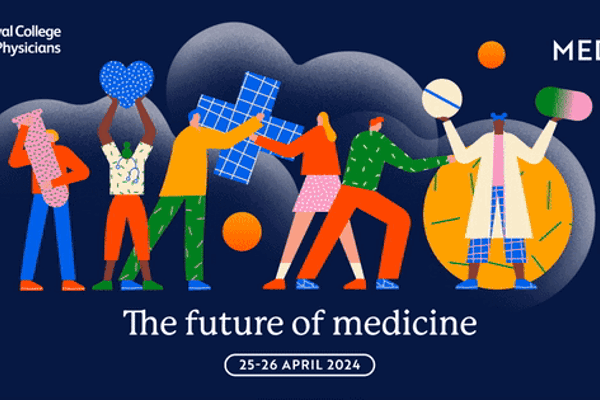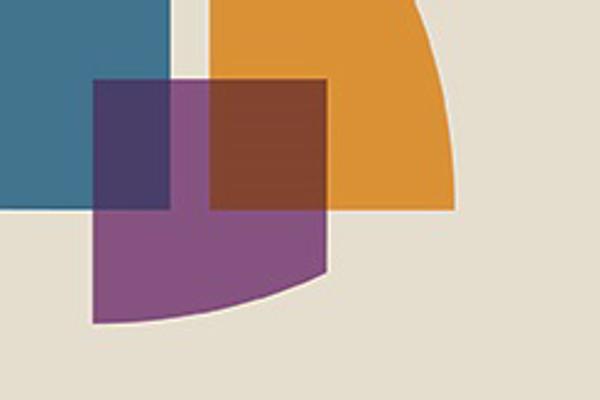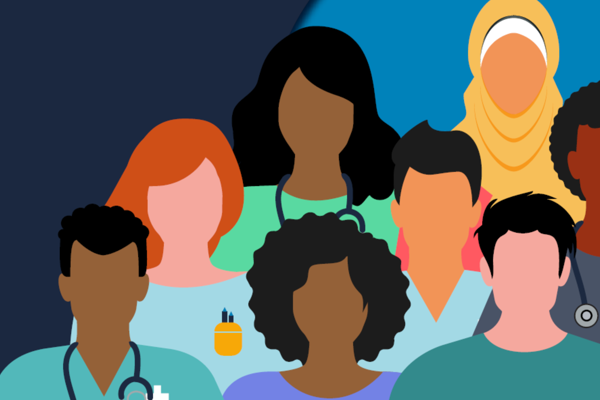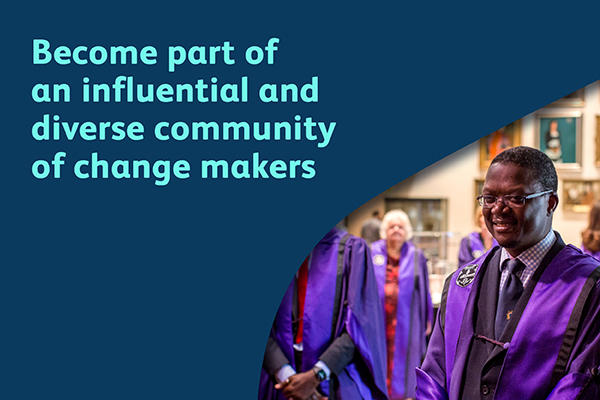For Black History Month, this This Doctor Can blog focuses on the life and career of consultant in diabetes and endocrinology, Dr Elizabeth Uchegbu.
One of my proudest moments as an RCP fellow was back in January 2016. I was reading a brochure that described the strides RCP London and the West African College of Physicians (WACP) had made in non-communicable disease (NCD) training in West Africa and to my surprise, I saw a photograph of myself looking back at me.
I had recently returned from a trip to Nigeria where I served as part of the RCP/WACP faculty. The training, which was the first of its kind, was designed to disseminate NCD management best practices across Nigeria through a train-the-trainer approach. The programme was an immediate success and caught the attention of both the Nigerian minister for health and a number of key senators. It also highlighted to me that there are several opportunities to develop partnerships between institutions in my home country and my second home, the UK.
I remember seeing my face in the brochure representing the RCP and being struck by a feeling of belonging. I have always been very proud of the RCP and the impact it has made both on the British and global medical communities. However, due to my identity as a female, ethnic minority immigrant, I have not always felt like a part of this legacy.
Being a woman who is black and who trained abroad, I bring perspectives and experiences to the table that make me particularly valuable. However, I have also encountered obstacles along the way that have made me doubt whether I could succeed at all. I got through with hard work, luck and fostering strong relationships. I now look forward to motivating others like me to do the same.
Upbringing
I was raised in a small town in south-eastern Nigeria to a schoolteacher and police detective. Upon reflection, I realise my upbringing was humble, but it never occurred to me at the time. I was proud that we grew our own cassava and plantains on our farm and, as a ‘tomboy’, I was more than satisfied making my own toys – like making and flying my own kites out of my Dad’s old newspapers, flexible sticks from the farm and my mum’s hair thread with my older brother and cousins.
Despite the common stresses of medical school, I graduated top of my class and moved to the UK a newlywed mother of two infant girls to contribute to what I saw – and still see – as a truly inspirational health system. I believed the hard work that brought me this far would lead to success in my new country. However, it would not be that easy.
Immigration
My status as a foreign trained doctor presented perhaps the most explicit challenges to me when I was going through my training. When you are a foreign national without permanent residency, you cannot rely on being well qualified for a role to get it. I struggled to get several research positions because immigrants were not allowed to be appointed unless there were no British or EU citizens to take the position.
Applying for roles and being told point blank that I couldn’t get them because of who I was, rather than what I had proven myself to be capable of, was disheartening. I finally got my ‘big break’ when the candidate appointed for a research registrar post that I interviewed for dropped out at the last minute. I seized the opportunity and will be forever grateful to Professor Kopelman of The Royal London Hospital for thinking of me during that unexpected turn of events. However, it is my hope that future immigrant trainees need not rely so explicitly on luck to advance.
Motherhood
For many, motherhood is a ‘damned if you do, damned if you don’t’ decision. Unfortunately, many women face significant judgment for choosing not to have children, while others face judgement and insufficient support when they do choose this. I am the mother of five wonderful children ranging from ages 13 to 27 so I experienced the latter situation.
My husband is also a doctor and during my training inter-deanery transfers and flexible training did not exist in the form it does today. It was almost as if those who’d structured medical training then did not think one couple could possibly contain two doctors. As a result of this, my family had to uproot and move constantly. We moved to almost every region of the UK and my eldest daughters went to five different primary schools during this period.
We survived and thrived with the help of au pairs, relatives and colleagues-turned-friends. I still remember the consultant and his wife who would babysit for me when I was a trainee at Grimsby Hospital. To put an end to the constant relocation, my husband ultimately gave up his visiting training number in obstetrics and gynaecology and switched to GP training so our family could live together in one place. Both his sacrifice and the generosity of those in our professional and personal community helped keep our family stable as I moved through a training structure that did not seem to have young families in mind.
Racial bias
Being a woman, and an immigrant woman, has been challenging on its own. Adding my racial identity as a black African makes life more challenging in unexpected ways. Sometimes, despite wearing your ID badge, you are mistaken for a care assistant, a cleaner or nurse, and you are not sure whether it was your race, your gender or your foreign accent that led to this. Other times, you are told more explicitly that you don’t look like you belong in your role by patients or other colleagues. I still distinctly remember the day I was pulled aside by a white male consultant while preparing for my MRCP part 2 and given some career advice.
‘The Royal College of Physicians is built for middle class white males. You are a female and a black one at that. I don’t think you’ll find a place here.’
This memory stands out so clearly to me because that consultant truly thought he was helping me by giving me this ‘advice’. Of course, being a minority has made the journey harder, but it is not a challenge that should be taken as insurmountable.
Twenty-one years later, as a consultant physician and a mother of five children – including an internal medicine trainee and a fourth-year medical student (and two of the others aspiring to do the same) – I feel proud that what I was told was wrong then and is unmistakably wrong now.
Looking ahead
I am a black African, I am a woman, I am a mother and I am an immigrant. It is no secret that as of today, I am not representative of the RCP, but I’m hoping that tomorrow I will be. The reality is that whether due to unconscious bias or structural impediments, barriers are created that make it harder for people who are different to succeed. However, to those reading who also happen to reflect the rich diversity of the world: Do not be discouraged.
Take advantage of every opportunity you are given, even if you are not given every opportunity that you deserve, and cherish the relationships you build on the way. If you do, then as I found that January morning, you will find that you can change what the RCP looks like by being a thriving, joyful part of it.
Would you like to share your experience of becoming a doctor? Get in touch on Twitter via @thisdoctorcan.




